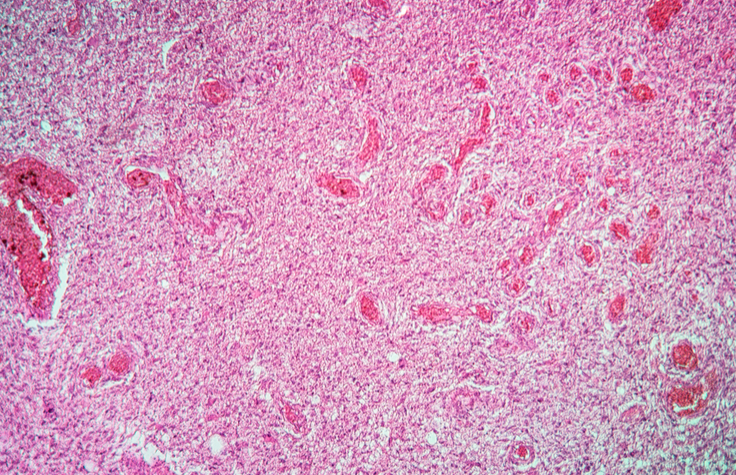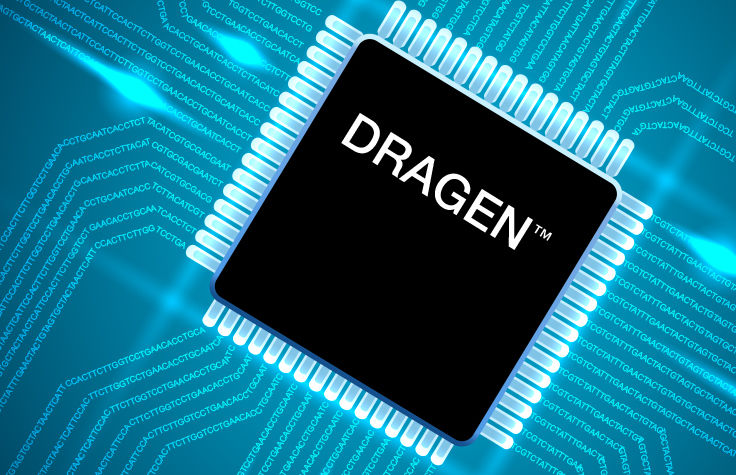Somatic Mutations
Somatic Mutation Research in Cancer
Molecular profiling is critical for identifying and characterizing the unique somatic mutations that accrue in cancer cells. Comprehensive tumor and blood profiles can help to identify biomarkers that are prognostic or predictive, relevant in clinical trials, or cited in recent clinical studies.
Next-generation sequencing (NGS) is becoming more widely adopted as a valuable method for somatic mutation analysis in cancer. NGS offers high sensitivity, ease of use, and accurate data quality for identifying even rare mutations successfully. These advantages are driving increased adoption of NGS in clinical cancer research.

Somatic Mutation Analysis Options for Cancer Research
Pan-Cancer Profiling
Although all cancers are unique, many share common driver mutations. Pan-cancer profiling enables researchers to detect relevant somatic mutations and other variants across multiple cancer types, regardless of tumor origin.
Learn MoreHematological Cancer Profiling
Liquid tumors, such as myeloid and lymphoid malignancies, often carry somatic mutations that are distinct from solid tumors. Molecular profiling of hematological cancers assesses mutiple relevant genes and classes of genetic mutations at one time.
Learn MoreSolid Tumor Profiling
Targeted sequencing of solid tumors can identify somatic mutations associated with cancer, even among highly heterogeneous tissues. Visit our Targeted Cancer Sequencing page and view the "Solid Tumor" tab to find solutions for studying solid tumors.
Learn MoreAll Cancer Research Products
View a comprehensive list of Illumina cancer research products; filter to narrow your results. To find products for somatic mutation detection, filter by "Somatic Variants" (under "Variant Class").
View ProductsAdditional Somatic Mutation Detection Strategies
Tumor-Normal Comparisons
Through tumor-normal whole-genome sequencing, researchers can comprehensively compare tumor and normal samples to identify somatic mutations and other alterations in both coding and noncoding regions of the genome. This hypothesis-free approach highlights the genetic changes specific to a tumor sample relative to a matched normal sample in a genome-wide manner.
Learn MoreDeep Sequencing
Because of tumor heterogeneity and normal cell contamination, sequencing of a tumor sample often identifies a mix of DNA signatures representing the constituent cell types of that particular tumor sample. Thus, detection of true somatic mutations requires deep sequencing to detect driver mutations at low allelic fractions within the sample.
Learn More
NGS Workflow Finder
Take the guesswork out of your next workflow. The NGS Workflow Finder provides personalized solution recommendations and resources so you can sequence with confidence.
Find your NGS workflow todayFeatured Somatic Mutation Articles

NGS for Brain Tumor Studies
Se Hoon Kim, MD, PhD discusses studies of glioma genetic markers and explains why he believes somatic mutation profiling with NGS will become routine in clinical practice.
Read Article
NGS Implementation in Oncology
Key opinion leaders discuss the ongoing challenges and future potential of NGS in clinical oncology, as well as considerations for somatic and germline mutation detection.
Read Article
The Genetic Basis of Oral Cancer
Researchers identify a broad range of genomic alterations associated with a deadly oral cancer, including somatic mutations.
Read ArticleSomatic Variant Detection with the DRAGEN Bio-IT Platform
The Illumina DRAGEN (Dynamic Read Analysis for GENomics) Bio-IT Platform provides accurate, ultra-rapid secondary analysis of NGS data. A variety of analysis apps are available, including the DRAGEN Somatic Pipeline, which includes tumor-only and tumor–normal modes for detecting somatic variants in whole-genome and whole-exome sequencing samples.
Learn More About DRAGEN
Related Methods
Cancer Whole-Genome Sequencing
Get a genome-wide view of somatic mutations and other genomic alterations present in cancer tissue, and discover novel cancer-associated variants.
Learn MoreCancer Exome Sequencing
Focus on sequencing coding regions, which frequently contain mutations that affect tumor progression, for a cost-effective approach.
Learn MoreCancer RNA Sequencing
Understand the functional effects of somatic mutations by detecting gene fusions, novel transcript isoforms, and changes in transcript abundance.
Learn More